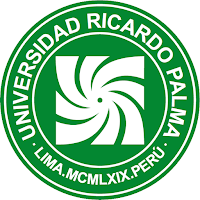Vallejo and my Grandpa: Poetic Persona and Real Person in The Black Heralds
Vallejo and my Grandpa: Poetic Persona and Real Person in The Black Heralds Vallejo and my Grandpa: Poetic Persona and Real Person in The Black Heralds
Article Sidebar
Main Article Content
José Antonio Mazzotti
Abstract
This paper departs from the personal knowledge that Dr. Humberto Ramos Guardia (Huaraz, December 26, 1900-Lima, October 13, 1980) had of César Vallejo. Dr. Ramos was the maternal grandfather of the author of this essay. He explores the limits between the biographical person of Vallejo and the poetic person represented in his first book, The Black Heralds (1918- 1919). Humberto Ramos Guardia was a science teacher at the Barrós school in the same years that Vallejo was a teacher of History, Language and Geography. Both men cultivated a cordial friendship that allowed Humberto Ramos to get to know closely the jovial personality and mocking ideas of César Vallejo in his Lima stage. The essay will delve into some aspects of The Black Heralds that problematize the traditional image of the depressive and melancholic poet that tends to prevail in the criticism about the poet from Santiago de Chuco.
Article level metrics
Downloads
Metrics
Article Details

This work is licensed under a Creative Commons Attribution 4.0 International License.
La revista utiliza una licencia Creative Commons para mostrar a los lectores y a los usuarios cómo se pueden utilizar los contenidos publicados.
Los contenidos publicados en la revista están bajo una licencia CC-BY 4.0, la cual permite:
- Compartir, copiar y redistribuir el material en cualquier medio o formato.
- Adaptar, remezclar, transformar y construir a partir del material para cualquier propósito, incluso comercialmente.
Bajo los siguientes términos:
- Atribución. Usted debe dar crédito de manera adecuada, brindar un enlace a la licencia, e indicar si se han realizado cambios. Puede hacerlo en cualquier forma razonable, pero no de forma tal que sugiera que usted o su uso tienen el apoyo de la licenciante.
La información de licencia se muestra e incrusta en las páginas de artículos y en ficheros de texto completo como sigue:
«Este obra está bajo una licencia de Creative Commons Reconocimiento 4.0 Internacional».
Alegría, Ciro (1974). «Conversación con José María Eguren». En Obras completas de José María Eguren. Lima: Mosca Azul Editores, 436-440. Aparecido originalmente en el diario El Comercio, 4 de marzo de 1960.
Ángeles Caballero, César (1958). Los peruanismos en César Vallejo. Lima: Editorial Universitaria.
Ángeles Loayza, César (2001). «César Vallejo y el humor». Recuperado de <http://www.andes.missouri.edu/andes/Especiales/CALVallejo/CAL_Vallejo.html>. (Consulta mayo de 2019).
Ángeles Loayza, César (2009). «César y Georgette Vallejo: entre las 2 orillas y al pie del orbe». Intermezzo Tropical, 6/7, 141-144. También en <https://www.scribd.com/document/29820736/Cesar-y-Georgette-Vallejo-entre-las-dos-orillas-y-al-pie-del-orbe>. (Consulta mayo de 2019).
Burga, Manuel y Flores Galindo, Alberto (1980). Apogeo y crisis de la República Aristocrática. Lima: Ediciones Rikchay Perú.
Cajero, Antonio (2013). «La edición y los editores de Los heraldos negros[1919]». Revista de El Colegio de San Luis. Nueva época, III, 6, 190-198.
Espejo asturrizaGa, Juan (1965). César Vallejo: itinerario del hombre, 1892-1923. Lima: Juan Mejía Baca (impreso en Argentina).
Espino reluCé, Gonzalo (1992). «A 100 años del nacimiento de César Vallejo. El profesor Vallejo y su poesía juvenil». Tarea, 30, 49-57.
Fernández, Carlos y Gianuzzi, Valentino (2011). «César Vallejo y la musa esquiva de Trilce». La República. Recuperado de <https://larepublica.pe/tendencias/587693-cesar-vallejo-y-la-musa-esquiva-de-trilce>. (Consulta mayo de 2019).
Foffani, Enrique (2018). Vallejo y el dinero. Formas de la subjetividad en la poesía. Lima: Cátedra Vallejo.
José Antonio Mazzotti, Tufts University, Massachusetts, Estados Unidos
Contacto: jose.mazzotti@tufts.edu
Most read articles by the same author(s)
- José Antonio Mazzotti, Vallejo migrante y la diáspora poética latinoamericana , Archivo Vallejo: Vol. 1 No. 1 (2018): January - June
- José Antonio Mazzotti, Fable of the free beast: poetry, sexuality and procreation in Trilce. A new hypothesis about the name , Archivo Vallejo: Vol. 5 No. 10 (2022): July - December










